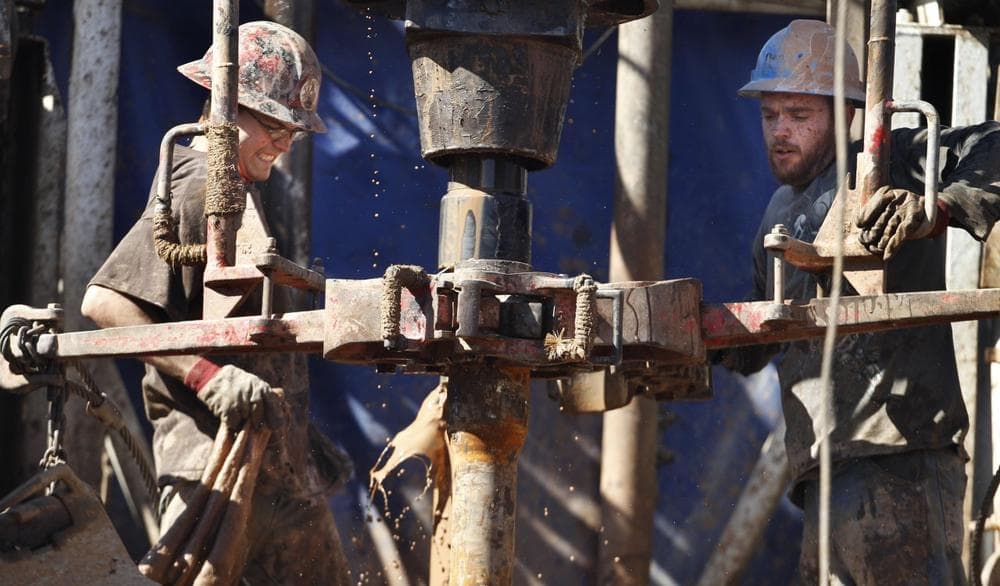Advertisement
Better Fracking
ResumeFracking for natural gas booms on. But it uses and pollutes a lot of water. We’ll look at the push to reduce, reuse, and recycle “frack water.”

Big talk lately about the United States emerging as an energy superpower. Bigger than Saudi Arabia! But at the heart of that is fracking, and fracking has issues. A big one is water. Hydraulic fracturing – “fracking” - take lots and lots of fresh water. Billions of gallons.
And makes it dangerous and unusable for drinking, for farming - for anything really but more fracking. This at a time of drought. A time when the Missouri and Mississippi rivers are fighting for water. Could we recycle this problem away?
This hour, On Point: getting real on our fresh water and fracking.
-Tom Ashbrook
Guests
Russell Gold, energy reporter for the Wall Street Journal.
Eli Gruber, founder, chairman and CEO of Ecologix Environmental Systems, a wastewater treatment company specializing in hydraulic fracturing, municipal wastewater treatment and industrial wastewater.
Rob Jackson, professor of environmental sciences and biology at Duke University’s Nicholas School of the Environment.
Anthony Ingraffea, professor of Civil and Environmental Engineering at Cornell University.
From Tom's Reading List
Bloomberg "Brent Halldorson, chief operating officer of Fountain Quail Water Management LLC, discusses his company's management of water used by natural gas companies in hydraulic fracturing. As local and federal regulators raise questions about potential pollution from drilling operations, U.S. oil and gas producers are turning to water service companies like Quail Water Management to improve their handling of the millions of gallons of fluids involved in an average well."
Wall Street Journal "From energy industry giants Halliburton Corp. HAL +1.20% and Schlumberger Ltd. SLB +1.38% to smaller outfits such as Ecologix Environmental Systems LLC, companies are pursuing technologies to reuse the "frack water" that comes out of wells after hydraulic fracturing, or "fracking"—the process of using highly pressured water and chemicals to coax oil and gas out of shale-rock formations."
Akron Beacon Journal "Sometimes it’s referred to as “residual waste,” more frequently “brine.” Most people know brine as a table salt solution. The ocean is brine. However, most inorganic compounds that are soluble are salts. It is a mistake to think any naturally formed brine has only the properties of a sodium chloride solution. It may be far more corrosive, poisonous or concentrated."
This program aired on November 26, 2012.